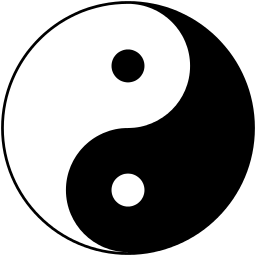I have posted about ethics before, but that was back in 2012 and sometimes it is worth re-exploring an idea. This past month or two has seen some division within the Pagan, or more specifically, the Occult community, mostly because of the hexing of Brock Turner.
I’ve noted that ethics is a tricky thing for us in the occult business. I have spoken of someone I know who would do Reiki on people whilst giving them massages – they obviously consent to the massage, but they don’t even know about the Reiki let alone consent to it. There would be some people who think this is okay, it’s a positive thing, healing, therefore there is nothing wrong with this, nothing unethical about it. A lot of us would disagree – consent is consent, to do this to someone is wrong and unethical. We don’t know what it could do. Some people have physically bad reactions to Reiki. Some people would be against it on a spiritual/religious level, to perform Reiki on them would be to taint them, make them impure in the eyes of their religion and God/s.
This can be likened to mainstream medicine. How would you feel if some doctor jabbed a needle full of medicine into you without your consent? How would you feel if you found out they were crushing up pills and putting them in your drink, so that not only do you not to consent to the medical treatment, you don’t even know it’s happening? These are violating actions, no two ways about it. We can say “for their own good” but we all know how we would feel to be on the receiving end. Reiki and other forms of “good” magic are similar – just because we think it is positive and “for their own good”, that doesn’t mean we have the right to violate them.
So ethically speaking, performing so called good magic on someone, without their consent, is not good.
But then we move on to things like hexing and cursing. In these consent goes out the window, it’s not even a minor fleeting consideration. Can you imagine it?
“Hi, would you please consent to me placing a hex on you?”
“No!”
“Oh, okay then. No hexing today friends!”
Ha! Yeh it doesn’t work that way. Asking defeats the purpose, which is to, well, violate consent. The whole point of a hex or curse is to place upon someone, something they do not want.
Positive actions require consent.
Negative actions require non-consent.
And if you ignore either rule things go a little wonky.
Things that hurt you are not always bad things, sometimes they are healing. Medicine is the best example for this really – think a burn victim having to endure the pain of having their burnt skin removed, painfully, agonisingly – but if it isn’t done, if it isn’t removed and cleaned the consequences would be way worse. The act of harm here is an act of healing. Irradiating someone would be bad in normal circumstances – but if it is done properly to defeat cancer, it is a good thing.
Conversely healing people can lead to harm. As above in the forced medicine example, it’s a violation and harms us psychologically and emotionally. But more than that, forcing a person who is in constant pain and who is dying anyway, to prolong their life because it is against your personal sensibilities to let them die, is harmful to them. Their pain is prolonged by your futile fight to save their life. Forcing healing onto them is harmful.
And it works this way in magic too.
Healing magic, if not consented to, could be considered a hex. It is magic done to someone, without their consent, possibly to their detriment, no matter our intentions. Something magically forced onto someone could be harmful and thus, technically, a curse or hex.
Harmful magic, if consented to, could conversely be considered a form of healing. It is magic done to someone with their consent, which means they want it – which would mean, in cases like Brock Turner, they recognise there is something wrong with them that needs to change – and the consequences of a hex is the way they think it would best come about and fix their problem.
We often talk about how intention matters. What we intend is the thing that matters most. If we intend good things, then it’s all good. If we intend bad things, then it’s all bad. But in the end our intentions are meaningless in the face of the power of consent.
The most well-intentioned thing can become the worst thing, if it is done to someone without their consent. While the worst intentioned thing could be the best thing, if it is done to someone with their consent.
So intent matters, sure. But consent trumps that in some cases. It’s probably a good idea to remember that before we do things on the basis of good intent. Of course, the idea of anyone actually consenting to a hex is a bit out there, but you never know!

















